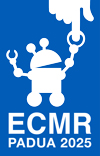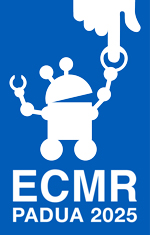Giuseppe Sutera, Dept. of Electrical Electronic and Computer Engineering, University of Catania, Italy
Dario Guastella, Dept. of Electrical Electronic and Computer Engineering, University of Catania, Italy
Thomas Ciarfuglia, Dept. of Computer, Automation and Management Engineering “Antonio Ruberti”, Sapienza University of Rome, Italy
Grzegorz Cielniak, Lincoln Institute for Agri-food Technology, University of Lincoln, UK
Gianluca Bardaro, Dept. of Electronics, Information, and Bioengineering, Politecnico di Milano, Italy
Simone Mentasti, Dept. of Electronics, Information, and Bioengineering, Politecnico di Milano, Italy
Matteo Matteucci, Dept. of Electronics, Information, and Bioengineering, Politecnico di Milano, Italy
Elias Marks, Institute of Geodesy and Geoinformation, University of Bonn, Germany
Federico Magistri, Institute of Geodesy and Geoinformation, University of Bonn, Germany
Daniele Nardi, Dept. of Computer, Automation and Management Engineering “Antonio Ruberti”, Sapienza University of Rome, Italy
Deep Learning in Agriculture, Forestry and Field Robotics
Tuesday, 2 September 2025
About the Workshop
Autonomous Mobile Robots (AMRs) are increasingly employed to carry out tasks that are hazardous or impractical for humans, spanning domains such as infrastructure monitoring, precision agriculture, forestry, and the exploration of hostile environments, including underwater and space missions, nuclear decommissioning, underground tunnel inspection, fruit picking, and search and rescue. However, effective deployment in real-world settings presents persistent challenges, particularly in
the areas of sensemaking, planning, decision-making, and deliberation. These operational environments are often marked by uncertainty, dynamic changes, limited sensor reliability, and heightened risk of system failures. Existing robotic systems tend to be either overly specialised for narrow tasks or demonstrate robust performance only in constrained or simulated settings.
While controlled experiments provide valuable insights, the gap between laboratory conditions and the complexity of real-world environments remains substantial, highlighting the need for representative datasets and rigorous benchmarking methodologies. The objective of this workshop is to promote research on the deployment and benchmarking of autonomous mobile robots in unconstrained environments. It seeks to foster contributions that demonstrate field deployment of AMRs in challenging scenarios and to encourage the development of new benchmarks that validate the real-world capabilities of these systems. By bringing together researchers and practitioners from across Robotics and Artificial Intelligence, the workshop aims to advance the state of the art in autonomous field robotics.

